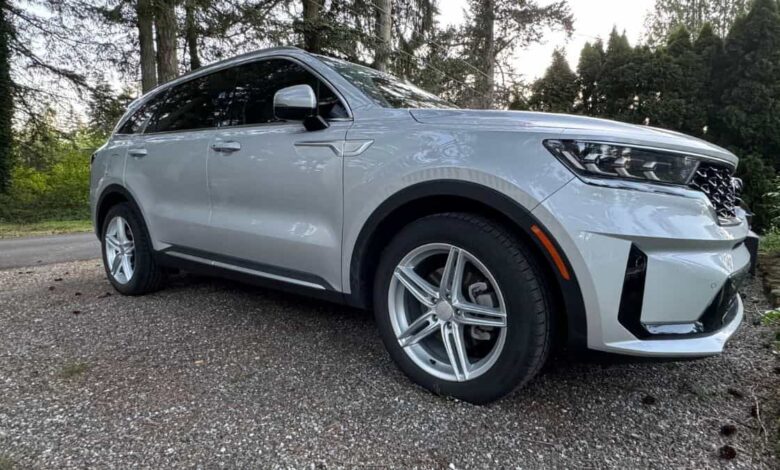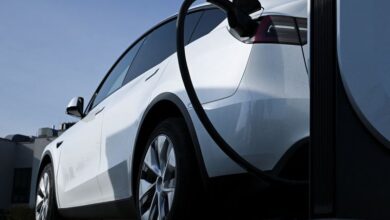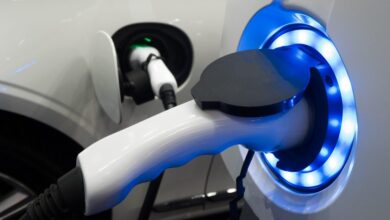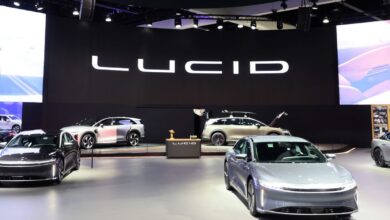Kia’s Sorento Plug-In Hybrid Is An Excellent Value, But Owner Doesn’t Recommend It For Everyone

In short, I do recommend the Kia Sorento PHEV, but with some caveats. I’ll get into those caveats more in a moment, after I explain why I’d buy this vehicle again and why I would recommend it to others with similar needs and interests.
First, when it comes to 3-row SUVs that plug-in, the Sorento PHEV is just an incredible value and can be more efficient than any non plug-in vehicle on the road today. It is spacious, comfortable, and has plenty of power to do the things it is meant to do (i.e. haul people and stuff around). It looks good, has great tech and innovative safety features. It even has a real (doughnut) spare tire! Oh, and did I mention it can be incredibly fuel efficient?
After almost 3 years of ownership my combined, real world, gas and electric fuel economy stands at a little over 76 MPG (i.e. the distance I am covering on average, per gallon of gas, including electric mileage). Over 53% of my driving has been done on electricity (less than I thought it would have been originally, but I’ve taken some long road trips in it, longer or a little more frequently than I had anticipated). I expect this figure will improve somewhat as I don’t plan on taking many more 2,700+ mile road trips in my Kia, so longer term I expect 60-70% might be how much I end up covering on electricity. Besides a very long road trip, the main reason I have only managed to cover about 53% of my miles on electricity is because the Sorento is just so comfortable and has more space than our other car, a Tesla Model 3. We sometimes drive it just because we want the extra space and comfort.
So about those caveats. PHEVs are inherently a compromise. They can travel significant distances on electricity alone, and thus are capable of outstanding efficiency. They also have the security or convenience of a gas engine for longer trips. But they also represent the “worse” [sic] of two technologies, according to Motor Trend (actually they called PHEVs “camels”, but read the article, it is worth your consideration). Personally I feel that’s unfair because PHEVs actually can be as efficient as similarly sized EVs and they use smaller batteries to (potentially) achieve a majority of miles driven on electricity and thus save more battery resources for other uses/vehicles.
The problem is that people don’t always plug them in or understand how to get the most efficiency out of them, and that is the main caveat I am calling out: if your goal is to save money, burn less/no gas, and you are not committed to studying your manual and doing lots of research and potentially altering the way you drive, PHEVs like the Sorento may not be your best choice. Buying a fully-electric or non plug-in hybrid (HEV) may be easier for you (though of course with an EV one does need to learn the ins and outs of planning and undertaking long road trips that require use of public charging infrastructure).
I also do not recommend the Sorento PHEV, or any PHEV, to anyone that regularly drives more than the maximum range of a full battery charge. I would extend that recommendation not to buy to anyone that takes more than a handful (5 or 6) road trips of over 2x the maximum battery range, per year, if the cost to do so is a factor. In a PHEV, you’ll still get great fuel efficiency if you do more drives/cover more distance than that, but you may end up using about the same amount of gas as an HEV or may end up spending more on maintenance and fuel than you would have in a fully electric option (because PHEV’s have more maintenance with those pesky gas engines).
In my mind then, the real market for PHEVs is really quite narrow: people who like to nerd out on their rigs and don’t drive long distances often and who can charge up at home regularly/easily. Of course PHEVs are also considered “training wheels” for mass market consumers to transition to EVs, but I really want to push back on that idea. Here’s why: if say 40-50% or so of all drivers switched to PHEVs by some miracle, and most of those people don’t have the option to charge at home or the inclination to do so (because they don’t understand or it feels like a hassle), they will not be inclined to plug-in and they will burn more gas than if they just went with a HEV instead!
In closing, by all means consider PHEVs like the Kia Sorento as they can greatly reduce your fuel bill and save precious resources, but do everyone a favor and seriously consider your driving needs and preferences first.
Are you looking at PHEVs for your next purchase? Are you a fan of Kia’s Sorento PHEV or other PHEV models? Please leave your questions and comments below.
Image courtesy of Justin Hart.
Justin Hart has owned and driven electric vehicles for over 16 years, including a first generation Nissan LEAF, second generation Chevy Volt, Tesla Model 3, an electric bicycle and most recently a Kia Sorento PHEV. He is also an avid SUP rider, poet, photographer and wine lover. He enjoys taking long EV and PHEV road trips to beautiful and serene places with the people he loves. Follow Justin on Torque News Kia or X for regular electric and hybrid news coverage.







